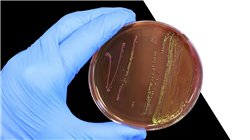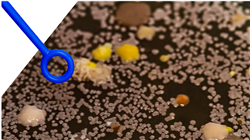University certificate
The world's largest faculty of nursing”
Description
Through this 100% online Postgraduate certificate, you will design and implement the most effective infection prevention protocols in clinical settings"

The proliferation of multidrug-resistant bacteria represents a critical challenge for healthcare systems worldwide, given the increasing incidence of hospital infections caused by these microorganisms. Faced with this situation, Nursing professionals play an important role in the application of techniques to combat these organisms. An example of this is Bacteriophages, which specifically destroy pathogenic bacteria without affecting human cells. For this reason, it is essential that nurses have a solid knowledge of the most innovative procedures to reduce the transmission of resistant infections and improve patient outcomes.
In this framework, TECH presents a revolutionary Postgraduate certificate on Emerging Strategies to Address Multidrug-Resistant Bacteria for Nursing. Designed by experts in this field, the academic itinerary will delve into CRISPR-Cas9 gene editing, addressing key factors such as the molecular mechanism of action. Likewise, the syllabus will delve into how Temporary Collateral Sensitization reduces the appearance of resistance by making it difficult for bacteria to develop simultaneous resistance to multiple antibiotics. In addition, the program will analyze the different types of vaccines against diseases caused by bacteria. In relation to this, graduates will develop competencies to handle the most sophisticated bioinformatics tools for the fight against Multidrug-Resistant Bacteria.
In terms of methodology, this program is delivered completely online, providing nurses with the flexibility to adapt to their schedules. In addition, the Relearning system, based on the repetition of key concepts to fix the knowledge, will facilitate an effective and rigorous update. This combination of accessibility and innovative pedagogical approach will ensure that participants acquire practical skills to excel in the field of Maxillofacial Forensic Radiology. The only requirement is that graduates have an electronic device with Internet connection, in order to immerse themselves in the Virtual Campus and enjoy the most dynamic educational resources on the market.
No rigid schedules or evaluative timelines. That's what this TECH Global University program is like!"
This Postgraduate certificate in Emerging Strategies to Address Multidrug-Resistant Bacteria for Nursing contains the most complete and up-to-date scientific program on the market. The most important features include:
- The development of practical cases presented by experts in Microbiology, Medicine and Parasitology
- The graphic, schematic and eminently practical contents with which it is conceived gather scientific and practical information on those disciplines that are indispensable for professional practice
- Practical exercises where the self-assessment process can be carried out to improve learning
- Its special emphasis on innovative methodologies
- Theoretical lessons, questions to the expert, debate forums on controversial topics, and individual reflection assignments
- Content that is accessible from any fixed or portable device with an Internet connection
Do you want to develop skills to evaluate Public Health projects aimed at combating Antimicrobial Resistance? Get it with this program in just 180 hours!"
The program’s teaching staff includes professionals from the field who contribute their work experience to this educational program, as well as renowned specialists from leading societies and prestigious universities.
The multimedia content, developed with the latest educational technology, will provide the professional with situated and contextual learning, i.e., a simulated environment that will provide immersive education programmed to learn in real situations.
This program is designed around Problem-Based Learning, whereby the professional must try to solve the different professional practice situations that arise during the course. For this purpose, students will be assisted by an innovative interactive video system created by renowned and experienced experts.
You will learn how Bacteriophages can be used as an alternative to antibiotics to treat infections caused by Multidrug-Resistant Bacteria"

With the Relearning methodology you will be able to study all the contents of this program from the comfort of your home and without the need to travel to a learning center"
Syllabus
Through this university program, nurses will have a comprehensive understanding of Multidrug-Resistant Bacteria and their impact on Public Health.
The syllabus will further explore CRISPR-Cas9 gene editing, which will enable graduates to implement gene therapies to treat diseases such as Sickle Cell Disease. The syllabus will also examine aspects ranging from the engineering of probiotic bacteria or antibacterial vaccines to phage therapy. In this way, professionals will obtain advanced competencies to develop effective clinical management strategies for infected patients.

You will be able to identify and differentiate between the most common Multidrug-Resistant Bacteria, such as Staphylococcus aureus"
Module 1. Emerging Strategies for Multidrug-Resistant Bacteria
1.1. CRISPR-Cas9 Gene Editing
1.1.1. Molecular Mechanism of Action
1.1.2. Applications
1.1.2.1. CRISPR-Cas9 as a Therapeutic Tool
1.1.2.2. Engineering of Probiotic Bacteria
1.1.2.3. Rapid Detection of Resistance
1.1.2.4. Elimination of Resistance Plasmids
1.1.2.5. Development of New Antibiotics
1.1.2.6. Safety and Stability
1.1.3. Limitations and Challenges
1.2. Temporary Collateral Sensitization (SCT)
1.2.1. Molecular Mechanism
1.2.2. Advantages and Applications of SCT
1.2.3. Limitations and Challenges
1.3. Gene Silencing
1.3.1. Molecular Mechanism
1.3.2. RNA Interference
1.3.3. Antisense Oligonucleotides
1.3.4. Benefits and Applications of Gene Silencing
1.3.5. Limitations
1.4. High-Throughput Sequencing
1.4.1. Stages of High-Throughput Sequencing
1.4.2. Bioinformatics Tools for Combating Multidrug-Resistant Bacteria
1.4.3. Challenges
1.5. Nanoparticles
1.5.1. Mechanisms of Action against Bacteria
1.5.2. Clinical Applications
1.5.3. Limitations and Challenges
1.6. Engineering of Probiotic Bacteria
1.6.1. Production of Antimicrobial Molecules
1.6.2. Bacterial Antagonism
1.6.3. Modulation of the Immune System
1.6.4. Clinical Applications
1.6.4.1. Prevention of Nosocomial Infections
1.6.4.2. Reducing the Incidence of Respiratory Infections
1.6.4.3. Adjunctive Therapy in the Treatment of Urinary Tract Infections
1.6.4.4. Prevention of Resistant Skin Infections
1.6.5. Limitations and Challenges
1.7. Antibacterial Vaccines
1.7.1. Types of Vaccines against Diseases Caused by Bacteria
1.7.2. Vaccines in Development against Major Multidrug-Resistant Bacteria
1.7.3. Challenges and Considerations
1.8. Bacteriophages
1.8.1. Mechanism of Action
1.8.2. Lytic Cycle of Bacteriophages
1.8.3. Lysogenic Cycle of Bacteriophages
1.9. Phage Therapy
1.9.1. Isolation and Transport of Bacteriophages
1.9.2. Purification and Handling of Bacteriophages in the Laboratory
1.9.3. Phenotypic and Genetic Characterisation of Bacteriophages
1.9.4. Preclinical and Clinical Trials
1.9.5. Compassionate Use of Phages and Success Stories
1.10. Antibiotic Combination Therapy
1.10.1. Mechanisms of Action
1.10.2. Efficacy and Risks
1.10.3. Challenges and Constraints
1.10.4. Combined Antibiotic and Phage Therapy

The teaching materials of this program, elaborated by these specialists, have contents that are completely applicable to your professional experiences"
Postgraduate Certificate in Emerging Strategies to Address Multidrug-Resistant Bacteria for Nursing
This Postgraduate Certificate in Emerging Strategies to address Multidrug-Resistant Bacteria for Nursing offered by TECH Global University of Technology is a unique opportunity for professionals to acquire advanced knowledge on the latest strategies and approaches in the fight against bacteria resistant to multiple antibiotics. This program, delivered 100% online, is designed to provide an in-depth understanding of current challenges in the management of multidrug-resistant bacterial infections and innovations in their approach. During the degree, you will explore the latest strategies in the diagnosis, treatment and prevention of infections caused by multidrug-resistant bacteria. In addition, topics such as advanced pharmacotherapy, the use of combination therapies, the role of the microbiota in bacterial resistance, and the implementation of infection control measures in healthcare settings will be addressed. One of the outstanding features of this course is its focus on emerging strategies and innovation in nursing care. Thus, you will learn about the use of advanced technologies such as genomic sequencing, phagolytic therapy and nanotechnology to address multidrug-resistant bacteria from different perspectives and improve clinical outcomes.
Master emerging strategies against multidrug-resistant bacteria
The online modality of the course offers flexibility and accessibility, allowing you to access the content from any location and at flexible times. Through an advanced educational platform, you will benefit from interactive resources and updated study materials that will enrich your learning experience. The course is led by a team of professionals with extensive experience in the management of multidrug-resistant bacterial infections and the development of emerging strategies in nursing care. Their clinical expertise and up-to-date knowledge ensure that you receive high quality training relevant to effectively address the challenges in the fight against antimicrobial resistance. Enrolling in this Postgraduate Certificate is a strategic decision for nurses who want to be at the forefront of managing complex infections and improving the quality of care in their work settings. This advanced degree provides the tools necessary to effectively address the challenge of multidrug-resistant bacteria and promote better patient outcomes.







